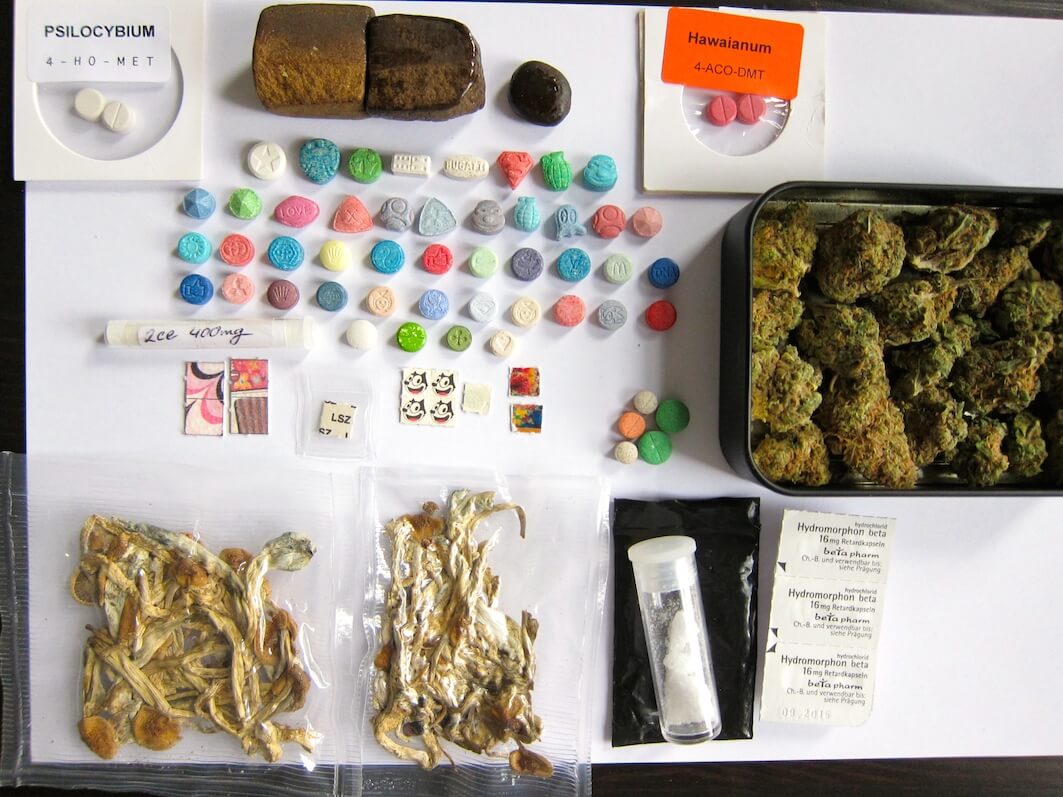
The British Medical Journal declares the war on drugs a failure and backs policy reform
The British Medical Journal have published an editorial piece calling for doctors and medical professionals to take the helm of drug policy reform. Arguing that the war on drugs has failed and that prohibition leads to less safe drug consumption, they urge health professionals to use their authority to demand “pragmatic reform informed by science and ethics”.
The article cites the prevalence of drug use worldwide (1in 20 adults having consumed an illegal drug in 2014, and a quarter of 15-year olds in the UK having taken an illegal substance of unknown quality and potency) and points to the increasing number of drug related deaths in the UK . It asserts that rather than being a war on drugs, prohibition is a war on “the millions of people who use drugs, and disproportionately on people who are poor or from ethnic minorities”.
The article also importantly highlights the fact that current drug laws impede research into the medical use of cannabis and other prohibited drugs despite evidence of potential benefits. Here at the Beckley Foundation, we have experienced these obstacles firsthand, with the regulations surrounding schedule 1 drugs adding considerable time and costs (10-fold increase) to the scientific programmes we have established with various universities around the world.
Thankfully, the BMJ’s editorial is an important indicator of a changing sentiment among medical professionals in the UK, and echoes the Royal Society for Public Health and the Faculty for Public Health, who published a report in June this year urging policymakers to stop treating drug use as a criminal issue and make it an issue of public health. This year, the British Medical Association (BMA), who have repeatedly rejected calls for the regulation of cannabis, called for the Department of Health to take responsibility for UK drug policy and for “legislative change” to prioritise treatment over punishment of drug users this year.
The status quo is being challenged from numerous sides and a growing medical voice in this debate helps highlight the flaws of the United Nations treaties, whose aim is to “advance the health and welfare of mankind” by prohibiting the non-medical use of some drugs. A kew flaw is that it is assumed by prohibitionists, including the current UK government, that prevalence of use is an indicator of drug policy success. Politicians and policymakers frequently cite declining or stabilising drug use as progress, ignoring prevalence of problematic drug use or drug related deaths, figures that are arguably more important.
The UK government continues to proclaim the success of its drug policy in spite of the fact that 2015 saw the highest number of drug related deaths ever recorded in England and Wales. Drug related deaths and emergency incidents have increased sharply since 2010, despite crime surveys reporting a lower incidence of illicit drug use. According to the Office of National Statistics (ONS), heroin-related poisonings have more than doubled from 579 deaths in 2012 to 1,201 in 2015. Deaths from cocaine rose for the fourth year in a row and have increased from 112 in 2011 to 320 in 2015. Amphetamine-related deaths, including MDMA poisonings, have risen from 56 in 2010 to 157 in 2015.
There are many factors proposed for this increase in drug deaths, including increased purity of drugs available, lack of access to harm reduction services and an ageing population of problematic drug users. It is also clear that prohibition creates a hostile environment for drug takers, pushing them further away from the health services they need and increasing the risks associated with their drug taking. Abstinence based policy also makes it harder for harm reduction services to access the resources they need to provide an adequate service.
The increased presence of British medical professionals in this debate will contribute to tipping the scales in favour of change. Although seemingly strides behind countries such as Portugal, the Czech Republic, the US and Uruguay, who are progressing towards liberalisation of drug policies, the UK position will become harder to preserve in the face of a rallying cry from public health organisations and medics in support of evidence-based health-promoting policies.
Words: Hattie Wells
Podcast
- All
Links
- All
Support
- All
BIPRP
- All
Science Talk
- All
Amanda's Talks
- All
- Video Talk
- Featured
- 2016 Onwards
- 2011-2015
- 2010 and Earlier
- Science Talk
- Policy Talk
One-pager
- All
Music
- All
Amanda Feilding
- All
Events
- All
Highlights
- All
Psilocybin for Depression
- All
Current
- All
Category
- All
- Science
- Policy
- Culture
Substance/Method
- All
- Opiates
- Novel Psychoactive Substances
- Meditation
- Trepanation
- LSD
- Psilocybin
- Cannabis/cannabinoids
- Ayahuasca/DMT
- Coca/Cocaine
- MDMA
Collaboration
- All
- Beckley/Brazil Research Programme
- Beckley/Maastricht Research Programme
- Exeter University
- ICEERS
- Beckley/Sant Pau Research Programme
- University College London
- New York University
- Cardiff University
- Madrid Computense University
- Ethnobotanicals Research Programme
- Freiburg University
- Medical Office for Psychiatry and Psychotherapy, Solothurn
- Beckley/Sechenov Institute Research programme
- Hannover Medical School
- Beckley/Imperial Research Programme
- King's College London
- Johns Hopkins University
Clinical Application
- All
- Depression
- Addictions
- Anxiety
- Psychosis
- PTSD
- Cancer
- Cluster Headaches
Policy Focus
- All
- Policy Reports
- Advisory Work
- Seminar Series
- Advocacy/Campaigns
Type of publication
- All
- Original research
- Report
- Review
- Opinion/Correspondence
- Book
- Book chapter
- Conference abstract
- Petition/campaign
Search type
